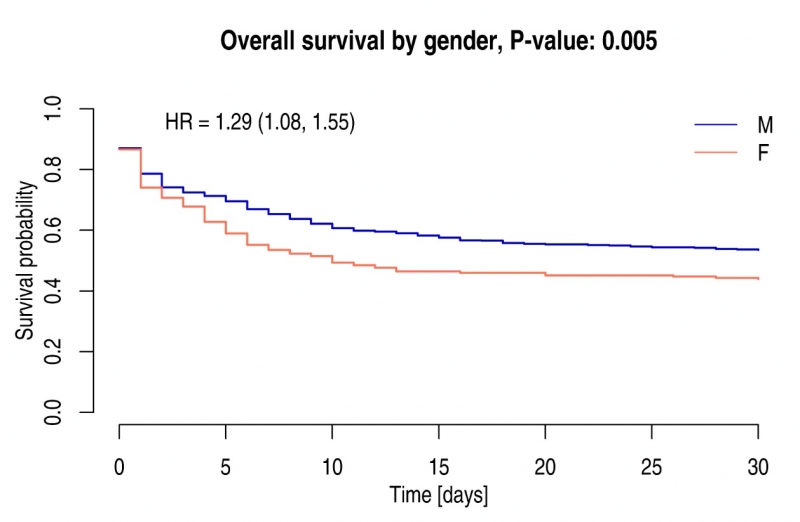GENDER DIFFERENCES AND SURVIVAL AFTER OUT OF HOSPITAL CARDIAC ARREST
Background:
Published evidence regarding the effect of gender on outcome after out of hospital cardiac arrest (OHCA) is inconsistent. We aimed to investigate the association of gender to outcome and resuscitation characteristics in OHCA patients admitted to the cardiac arrest center.
Methods:
In this analysis of registry data, all patients admitted for OHCA were included. The influence of gender on 30-day survival and good neurological outcome (cerebral performance category of 1 or 2) were examined using Kaplan-Meier estimates and multivariable logistic regression.
Results:
In total, 932 patients were analysed (239 women, 26%). Women were older (64 vs 60 years, p < 0.001) and less commonly had a shockable rhythm (47% vs 65%, P < 0.001) compared to men. Women were less likely to have a cardiac cause of arrest (54% vs. 75%, p < 0.001), received less therapeutic hypothermia (74% vs 86%, p < 0.001) and coronary angiography (63% vs. 79%, p < 0.001). The overall 30-day survival was lower for women (45% vs. 53%, log-rank p = 0.005) as well as good neurological outcome (37% vs. 46%, p = 0.008). However, according to the multivariate logistic regression, gender was not associated with survival (OR 0.98, 95% CI 0.65–1.50, p = 0.94) nor with good neurological outcome (OR 0.91, 95% CI 0.59–1.40, p = 0.67).
Conclusions:
Women admitted for OHCA to a cardiac center had a different cause of arrest that had a different treatment and outcome compared to men. Survival and good neurological outcome were lower in women, however, after adjusting for baseline characteristics, gender was not associated with survival nor neurological outcome.
